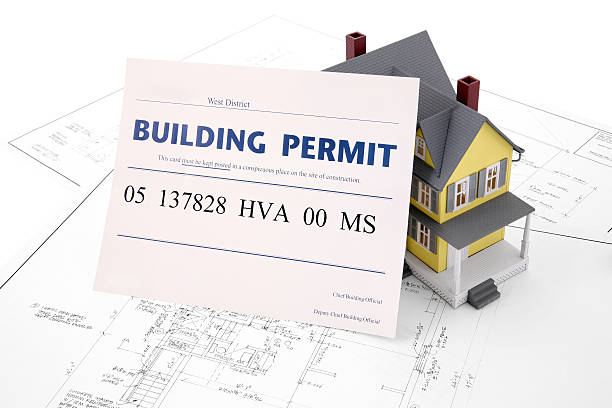Renting out your home is a popular idea. Renting out their homes can be a good way to earn extra money to pay off debt or save.
This plan can be a good one, but if you don’t take the time to consider all of its implications, it could end up being more trouble than it is worth. These five steps will help you get started in the right way.
Renting out your home for a short-term or seasonal rental is also an option if you live in a tourist-friendly area, such as near a beach or major city. Before you join a short-term rental site such as Airbnb, find out what the rules are.
Takeaways from the Key Notes
Landlords have many responsibilities, and they can incur unexpected costs. It is helpful to keep some cash in reserve if possible.
It is important to run a thorough background check on a potential tenant. Ask for several references from prospective renters.
It’s important to know your rights as well as the rights of the tenants you are renting out your property.
Renthop.com found that during peak season, you can get more money for your rental unit. The best times to find a tenant are July to September. However, seasonality varies from city to city.
You may want to consider short-term rentals if you own a house near a lake or beach.
Understanding the Responsibilities
You must first decide if you are capable of being a landlord. Renting has many benefits, including the ability to deter vandalism, which is often a problem with empty homes, as well as tax breaks and the ability to generate income to cover the bills or even make a profit.
You’ll have to stay on top of repairs and maintenance, collect rent, pay more for your a data-component=”link” data-ordinal=”1″ data source=” inline link” >homeowner’s insurance policy, and try to avoid wear and tear on your property by keeping an eye on your tenant’s housekeeping skills. You will need to keep up with repairs and maintenance. Collect rent. Pay more for your homeowner’s insurance. And try to prevent wear and tear by watching your tenants’ housekeeping skills.
It is important to know that the Internal Revenue Service requires landlords to report rental income in their tax returns. The IRS does have a Minimal Rent Use Rule, which says that rental income is not required to be reported if the dwelling unit was used as your residence and rented for less than 15 days. If rented for less than 15 days, however, the landlord will not be able to deduct expenses such as utilities that would reduce their taxable income.
Prepare your home for renters.
You won’t get away with renting the house as it is in a down economy. Due to the availability of more rental properties, tenants are becoming more discerning and demanding.
Prepare your home for a new tenant. Please make sure all appliances are in working order and good shape. You may decide to rent out a particular room or part of your house. Make sure you have a way to separate that space from the rest.
Market Your Home
After the house is cleaned, please make a list of the features that will help you sell it. Include the most desired features, such as air conditioning, a washer/dryer, and a garage. Renting terms can help you “sell” your property.
You can attract renters by using words like “granite,” “stainless steel,” “vaulted ceilings,” “maple,” and “hardwood flooring.” Use all the words that describe your house.
Post an ad for your home in local papers and on reputable sites. Some real estate agents work with homeowners to rent out their houses, but they will charge a fee if you find a tenant.
If you want to hire someone to manage your property, you can. However, they will charge you. Costs vary by company but are usually between 8% and 10% of monthly rent. There may also be additional fees.
Hiring Professionals to Navigate Your Financials
It may seem easy to convert your home to a rental property, but you should consult with real estate lawyers and accountants in order to ensure that you comply with local and state property laws and tax laws.
It’s important to understand which expenses are tax deductible. The amount of rental expenses you can claim each year is also limited.
A lawyer can help you navigate landlord-tenant laws that vary by state and community. You can also ask for help drafting your lease to ensure that it complies with local laws. Speaking with an attorney will help you establish the appropriate house rules and emergency contact.
Learn what other properties in your community and neighborhood rent for. Rent should be competitive. Potential tenants are looking for bargains, so make sure to highlight the best features of your house.
Check Tenants Carefully
As soon as you are ready to show your property, start looking for tenants. Choose your tenant carefully. This person must be someone you can depend on to not only pay your rent on time but also keep your house in good shape. If you are considering cohabiting with a person, you should also learn about their habits to avoid unpleasant surprises.
Remember to check references and credit history for any potential tenants. When screening the tenant, you should take precautions to ensure their safety. After all, they are a stranger. After you find the perfect tenant, request a reasonable deposit and set up a payment schedule.
Should I run a credit check on my tenant?
A credit check is always recommended for potential tenants. Credit reports can reveal a great deal about a tenant’s financial responsibility and help predict whether they will be able to pay their rent on time. You can either pull the tenant’s report yourself from one of the main credit bureaus (Experian, TransUnion, and Equifax) or use a specialist agency to get the information.
What is a common mistake made by Landlords?
One of the most common errors new landlords make is not screening tenants thoroughly. It can cause problems later on, such as late payments, disputes with neighbors, and property damage. You can get the credit report you need by using a standard rental form. Also, you should contact former landlords and employers.
What is the Best Reason to Hire a Property Management Company?
If you want to rent out your property but don’t feel you have the time or the experience to manage the business, this can be an excellent idea. Remember that the company will take a portion of your rental income. The majority of property management companies charge between 8% to 12% of monthly rent.
The Bottom Line
Renting a house can be a good idea for both the owner and tenant, but only if it takes the time to identify and avoid potential pitfalls. It’s your home, after all.
Join 120 Million Registered Users Exchanging the world’s most popular cryptocurrency. Buy and Trade Binance native coin BNB is a cryptocurrency that can be used to buy Bitcoin, Ethereum, or BNB. You can access the global crypto markets as a professional or a novice trader. With the lowest fees in the industry, you can also find guides and tools that will make it easier to use. Buy, sell, and convert NFTs safelyBinance App:



